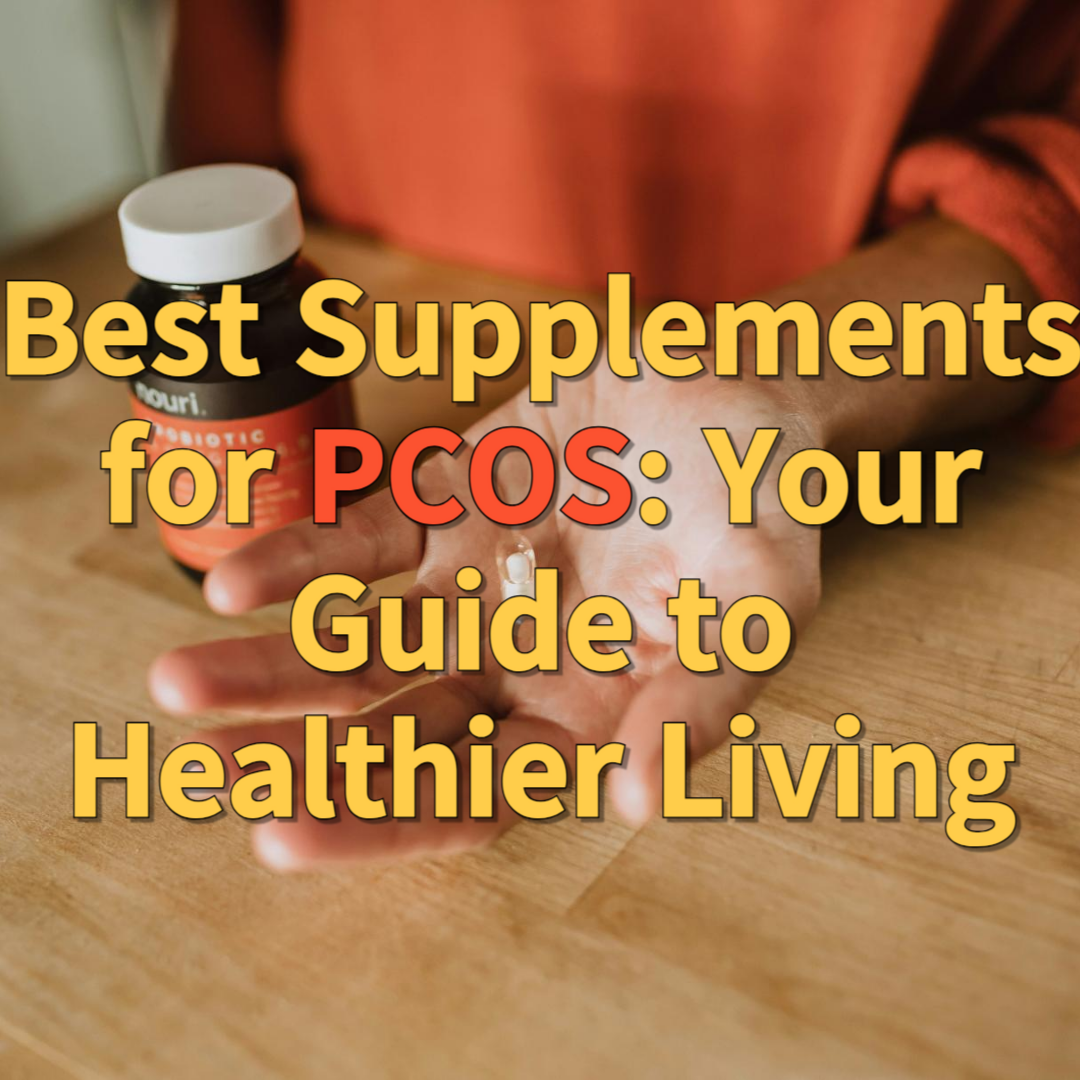Polycystic Ovary Syndrome (PCOS) is a common endocrine disorder affecting women of reproductive age. Characterized by hormonal imbalances, PCOS can lead to a variety of symptoms and complications. This blog post will explore the symptoms of PCOS at different stages, recommend effective supplements, and provide tips for managing and preventing the condition through diet and lifestyle changes.
Symptoms of PCOS
Early Stage Symptoms
In the early stages of PCOS, symptoms may be subtle and often go unnoticed. Common early signs include:
- Irregular menstrual cycles: Women may experience infrequent, irregular, or prolonged menstrual periods.
- Mild acne: Hormonal imbalances can lead to increased oil production and acne.
- Weight gain: Unexplained weight gain, particularly around the abdomen, is common.
Mid-Stage Symptoms
As PCOS progresses, symptoms become more pronounced:
- Hirsutism: Excessive hair growth on the face, chest, and back due to elevated androgen levels.
- Severe acne: Persistent and severe acne that is difficult to treat.
- Hair thinning: Thinning hair or male-pattern baldness.
Advanced Stage Symptoms
In advanced stages, PCOS can lead to more serious health issues:
- Infertility: Difficulty conceiving due to irregular ovulation or anovulation.
- Type 2 diabetes: Increased risk of developing insulin resistance and type 2 diabetes.
- Cardiovascular disease: Higher risk of heart disease and hypertension.
Recommended Supplements for PCOS
1. Inositol
Ingredients: Myo-inositol and D-chiro-inositol
Benefits: Improves insulin sensitivity and reduces androgen levels.
Price: $20-$30 for a month’s supply.
Where to Buy: Available on Amazon and health food stores.
Why It Helps: Inositol helps regulate menstrual cycles and improve ovulation.
2. Omega-3 Fatty Acids
Ingredients: EPA and DHA
Benefits: Reduces inflammation and improves insulin sensitivity.
Price: $15-$25 for a month’s supply.
Where to Buy: Available at pharmacies and online retailers.
Why It Helps: Omega-3s help manage weight and reduce the risk of cardiovascular disease.
3. Vitamin D
Ingredients: Cholecalciferol (Vitamin D3)
Benefits: Supports hormonal balance and improves insulin sensitivity.
Price: $10-$20 for a month’s supply.
Where to Buy: Available at pharmacies and online stores.
Why It Helps: Vitamin D deficiency is common in women with PCOS and supplementation can improve symptoms.
4. N-Acetylcysteine (NAC)
Ingredients: N-Acetylcysteine
Benefits: Improves insulin sensitivity and reduces oxidative stress.
Price: $15-$25 for a month’s supply.
Where to Buy: Available at health food stores and online.
Why It Helps: NAC helps improve fertility and reduce androgen levels.
5. Magnesium
Ingredients: Magnesium citrate or glycinate
Benefits: Reduces insulin resistance and supports hormonal balance.
Price: $10-$20 for a month’s supply.
Where to Buy: Available at pharmacies and online retailers.
Why It Helps: Magnesium helps reduce symptoms of anxiety and improve sleep quality.
Preventing PCOS with Diet and Lifestyle
Healthy Diet
A balanced diet is crucial for managing PCOS. Focus on:
- High-fiber foods: Vegetables like broccoli, Brussels sprouts, and leafy greens help improve insulin sensitivity.
- Lean proteins: Fish, chicken, and tofu provide essential nutrients without excess fat.
- Anti-inflammatory foods: Berries, tomatoes, and nuts help reduce inflammation.
Regular Exercise
Physical activity is essential for managing PCOS. Aim for:
- Aerobic exercises: Activities like walking, running, and swimming improve cardiovascular health.
- Strength training: Building muscle mass helps improve insulin sensitivity.
- Consistency: Aim for at least 30 minutes of exercise most days of the week.
Stress Management
Managing stress is important for hormonal balance. Consider:
- Mindfulness practices: Yoga and meditation can help reduce stress levels.
- Adequate sleep: Aim for 7-9 hours of quality sleep each night.
- Healthy habits: Avoid smoking and limit alcohol consumption.
Conclusion
Managing PCOS requires a comprehensive approach that includes dietary changes, regular exercise, and appropriate supplementation. By understanding the symptoms and taking proactive steps, women with PCOS can improve their quality of life and reduce the risk of long-term complications. Remember to consult with a healthcare provider before starting any new supplement regimen.
